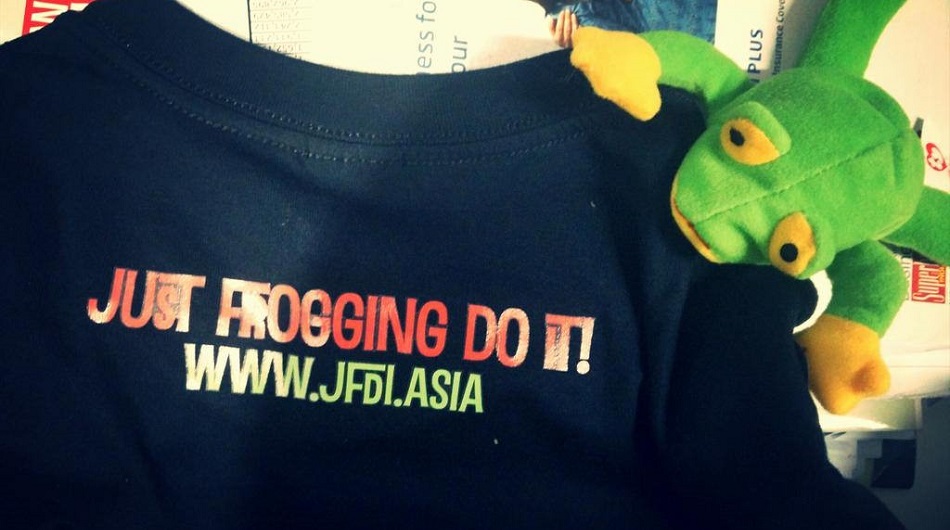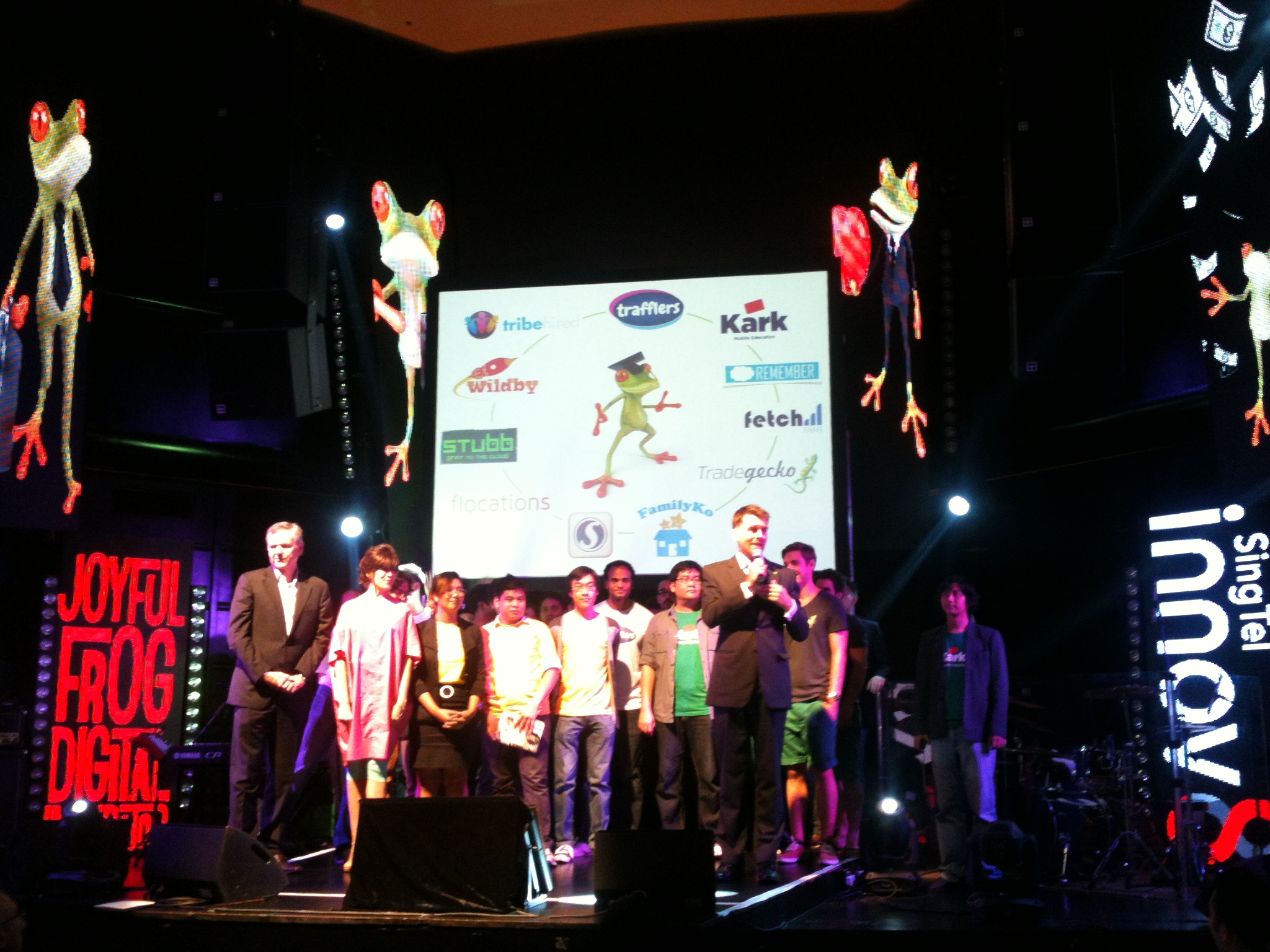
Photo credit: JFDI.
Singapore-based accelerator and incubator JFDI’s road has come to a rest stop. Here, the company that has been steadily been putting one foot in front of the other since its inception six years ago will put some of its baggage down, according to a post on JFDI’s blog by CEO Hugh Mason.
On the other side of the rest stop, the road is wide open – but it’s going to be a different JFDI that starts walking again.
The company’s startup accelerator program, which has been going on since 2012, comes to an end. Its last cohort, including businesses like Fynd and RoomFilla, graduated in December 2015.
It’s not clear what JFDI’s new form will look like.
“We are now building in new directions on what we learned nurturing thousands of entrepreneurs and investing in 70 startups,” Hugh writes. “So this post brings the first phase of our experiment to an end. With it Meng [Wong, JFDI co-founder] and I pass the baton on to others.”
It’s not clear what JFDI’s new form will look like (Hugh mentions there are a lot of things still wrapped up in non-disclosure agreements). The team has “restructured” and is now “exploring new models for startups to create new ventures in partnership with corporations.” A joint venture with Bosch and a partnership with Mediacorp are mentioned.
It’s been a long road
Through its program, JFDI accelerated and invested in 70 startups like Tradegecko and BoxGreen.
To anyone who’s worked within Singapore’s startup ecosystem, it has been an almost constant presence. It was the first company to kick off the wave of accelerators that now operate in the city state.
“Back then words like ‘lean startup methodology’ and ‘accelerator’ were unknown on this side of the planet,” Hugh recalls. The One North area, Singapore’s current startup and innovation hub, wasn’t even connected to the city’s subway system.
Looking back on JFDI’s performance, Hugh places the accelerator’s rate of success, meaning startups that went on to grow and secure additional funding, at about 10 percent of the companies it backed, a “typical” result for an early-stage portfolio.

JFDI’s inaugural startup cohort in 2012. Photo credit: JFDI.
The accelerator slowdown
Most importantly, Hugh shares some key lessons the team learned in the journey so far:
First, the company never quite figured out how to become a sustainable business. “In the US some Techstars accelerators have been able to virtually guarantee that one startup from each of their batches will realize value within 18 months or so after the program finishes,” he writes. Not so in this part of the world.
People have questioned the value and viability of accelerators in Singapore before.
Second, while Singapore is a good place to start a company, at the same time it presents certain challenges to an accelerator. “High costs, a tight market for tech talent, and restricted immigration mean that a different model to what we adapted from Techstars probably would be better,” he adds.
This sentiment is not new. The abundance of accelerator programs in Singapore has been talked about before, with people questioning the value they bring and their viability.
Just this morning, another prominent accelerator’s fate appeared uncertain too. SPH Plug & Play’s is currently “under review” and the company told Tech in Asia it is “evaluating the program and its current format.”
Some industry players say that most current accelerators in Singapore are “broken,” lifting concepts from other markets and putting them to work here without much extra thought. It doesn’t bode well for them.
See: Hi TIA, I’m Hugh Mason from JFDI. Ask me anything!
While the jury is still out on many of those businesses, and the arrival of several corporate-backed accelerators and innovation labs muddy the waters, this latest development by JFDI points to a need for reevaluation of the way an accelerator is set up and works with startups in the Lion City and in the region.
Hugh closes off on an optimistic note, pointing out that there is still opportunity and potential in the ecosystem and a lot of value in what JFDI can provide. “Our hunch is that it will take collaboration with corporations to make startups into scale-ups to address this opportunity, so that’s why we are focusing so much energy to explore this with our new partners,” he writes.
This post JFDI quits accelerator program, raises questions about the model in Singapore appeared first on Tech in Asia.
from Tech in Asia https://www.techinasia.com/jfdi-accelerator-no-more
via IFTTT
No comments:
Post a Comment